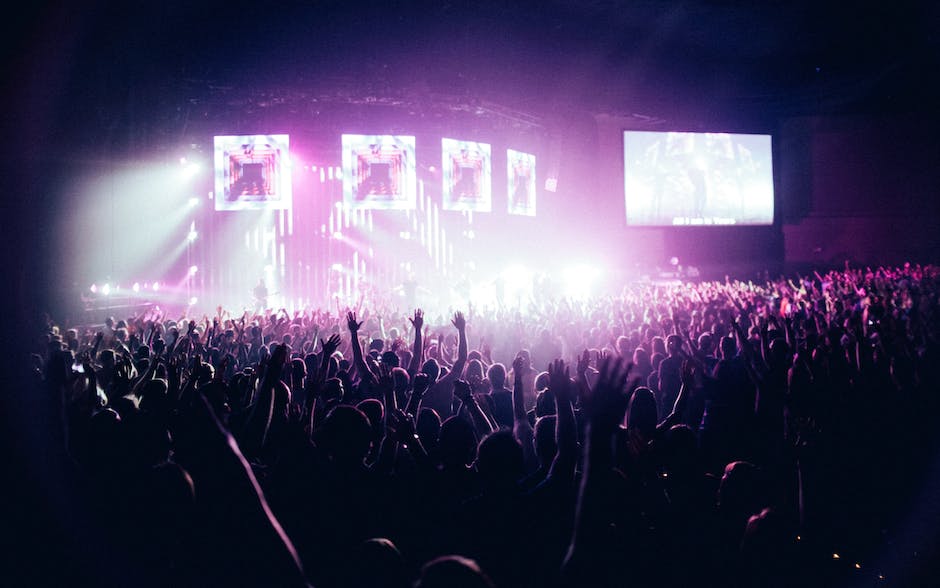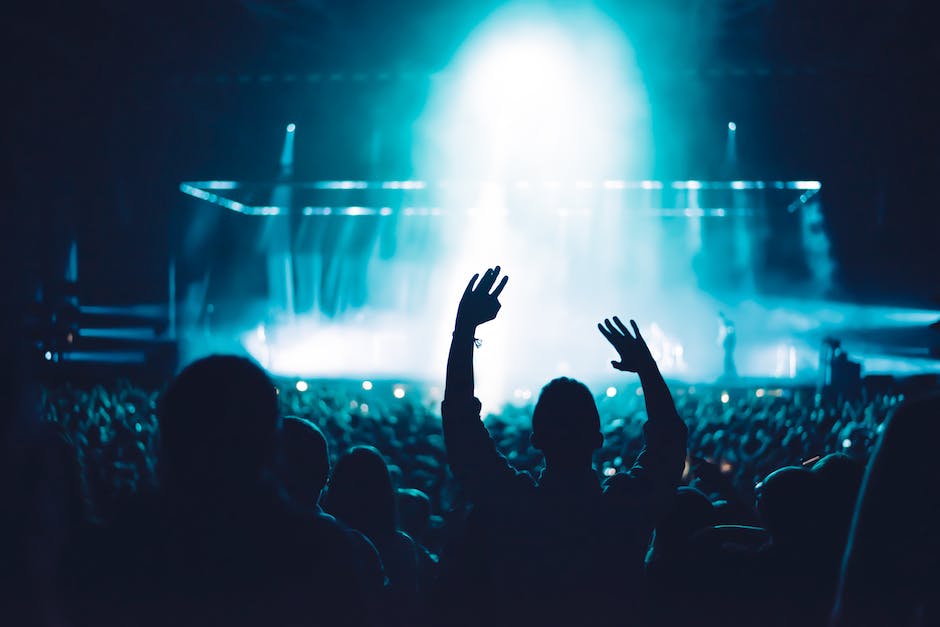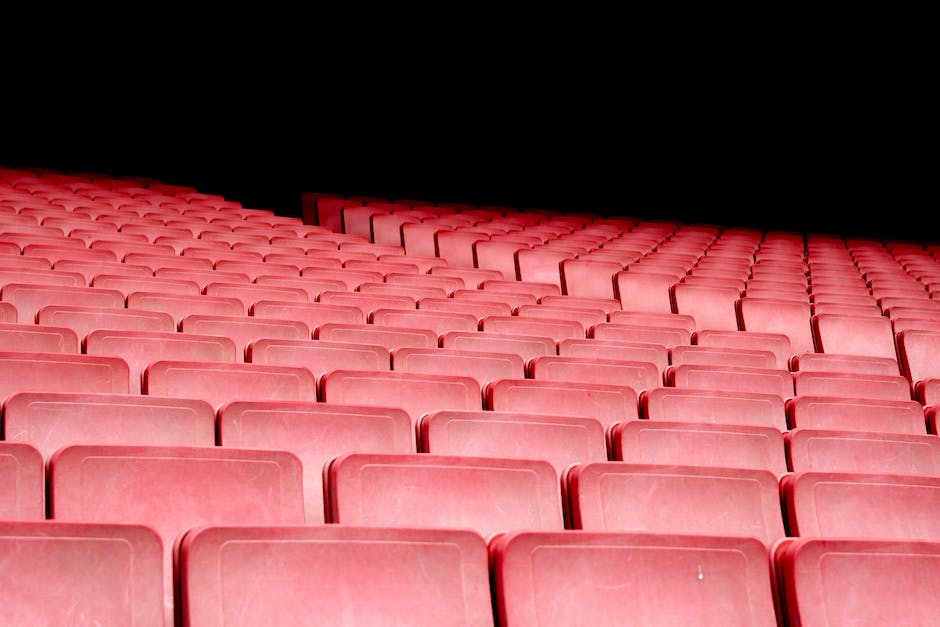Chicago, fondly referred to as the “City of Big Shoulders,” carries a grand musical heritage that resonates across various genres, celebrating a range of harmonious expressive melodies, from the soulful rhythms of Blues and Jazz to the modern beats of Hip Hop, Rock, Pop, and Electronics. Leveraging this rich musical diversity, the city has carved a significant niche for itself by birthing some of the world’s most notable music festivals such as the Chicago Jazz Festival, Lollapalooza, and the Pitchfork Music Festival. These storied festivals, year after year, lure music enthusiasts, not just from the length and breadth of America, but from around the entire globe – all coming to experience and appreciate the vibrant, cobbled streets of Chicago in their full rhythmic bloom.
Historic Influence of Chicago’s Music Festivals
In the bustling metropolis of Chicago, buried beneath the concrete jungle’s skyscrapers and shimmering lights, a lively and pulsating beat echoes. It emerges from the heart of the city, reverberating through historic neighborhoods, inspiring a contagious energy that sweeps across the crowds. This rhythm has long formed the soundtrack of the Windy City, born from a rich legacy of music festivals that have contributed to the flourishing and diverse musical culture we experience today. We’re diving into how the deep-seated history of music festivals in Chicago has shaped the city’s music scene.
Picture, if you will, the birth of the Chicagoan musical sensation – a constellation of humble beginnings. It dawned during the historical Jazz Age around the 1920s, when the city’s South Side gave rise to a vibrant and stirring jazz scene. The first significant outdoor festival, the Chicagoland Music Festival, held its inaugural event in Soldier Field in 1930, attracting over 100,000 fans. In this energetic assembly of jazz aficionados and newbies, the city’s creative pulse began to pulsate rapidly, widening the scope for the all-encompassing aura of music.
As the jazz age faded into the rearview mirror, a new player was emerging on the Chicago musical stage: blues. From the 1950s onwards, the blues scene exploded across the city, with the Chess Records label releasing significant hits of the era. The Chicago Blues Festival, which debuted in 1984, has since become the largest free blues festival in the world, transcending borders and creating an indelible influence on the city’s music ethos.
Fast forward to 1991, and amidst the medley of jazz and blues, the echoes of alternative rock began to pulsate through the city. Enter Lollapalooza, a revolutionary music festival that placed Chicago on the global music map and breathed life into an alternative music scene, fostering creativity and promising a highly anticipated explosion of musical expression. Today, it stands as a multi-genre behemoth showcasing eclectic music styles from heavy metal to hip-hop, a testament to the city’s ever-evolving music milieu.
As the new millennium dawned, electronic music festivals complemented the city’s mosaic, with the Spring Awakening Music Festival taking center stage. Since 2012, it has captivated audiences with the pulsating beats of electronic dance music, solidifying Chicago’s standing as a city that is not just receptive to, but actively invites, every genre under the melodic sun.
Across these decades of rhythmic evolution, music festivals in Chicago have etched an indelible imprint on the city’s identity. They’ve not just entertained but also educated, providing a platform for different musical genres to thrive and find loyal audiences. The festivals have given birth to an ever-evolving musical scene that is inclusive, diverse, and extraordinarily versatile.
Through the power of music, unity has been celebrated, boundaries have been crushed, and messages of liberation have resonated throughout each corner of the city. From the Jazz Age to the modern era of electronic music, Chicago’s music festivals have created spaces for exquisite symphonies to mold the city’s broad musical palate. This rich tapestry of rhythmic celebrations captures the soul of Chicago – an unending love song harmonizing the past, present, and a hopeful future. A scene that is continually shaping and being shaped by its community.

Impact on Community and Culture
At the beating heart of Chicago’s lively music scene are its festivals, dynamic and diverse powerhouses that have soaked up influences from jazz, blues, alternative rock, and electronic music over the decades. Manifestations of medley beyond mere sound, these festivals are platforms promoting a diversity of styles and genres, each contributing to the pulse and rhythm of the bustling midwestern metropolis.
A deployment of diversity on epic scales can be seen at venues such as the Pitchfork Music Festival. Born in the digital age, Pitchfork has cultivated an atmosphere that celebrates and inspires every facet of music culture. With its fingers firmly on the pulse, the festival populates its lineup with rising stars and well-established artists alike, spanning genres from indie rock to hip hop, electronica to jazz. The festival, in essence, serves as a mirror to the rich tapestry of Chicago’s music tastes, reflecting the eclectic sonic landscape residing within the city.
The Riot Fest, another emblem of genre-expansive festivals, has carved a niche for itself with rock and punk artistry. Its emphasis on punk, alternative rock, and the bravura of metal resonate with a sense of rebellion and grit that is synonymously Chicagoan. The festival consistently becomes a breeding ground for creativity, as musicians, local and international, influence each other and harness this energy in their future performances and creations.
The SummerDance festival, a jewel in Chicago’s cultural crown, stirs the city with the rhythm of world music and dance, inducing a spectacular multicultural celebration. From salsa to swing, Indian bhangra to African pop, the festival showcases the city’s charismatic global identity, fostering unity within its population’s rich array of ethnicities and backgrounds.
Moreover, the proliferation of house music festivals and events such as the North Coast Music Festival denote Chicago’s definitive role in the genre’s origin story and its continuous evolution. These grooving, bass-filled gatherings further underline Chicago’s legacy as an epicenter of transformative and innovative music movements.
Significantly, it isn’t just an influx of varied music styles that these festivals encourage; the phenomena also catapult the sense of community in the city. Communal love of music transcends socioeconomic, racial, and geographic barriers, contributing to the cultural fabric of the city. It serves as a means of connection, establishing relationships among distinct groups and individuals. The camaraderie cultivated at these spaces can be seen spreading to city streets, cafes, and bar corners, effectively permeating the vibrant social energy throughout Chicago.
In conclusion, the phenomenon of music festivals in Chicago is a vigorous testament to the city’s thriving music scene. Bursting with diversity and rich in influence, these festivals echo through time, shaping the city’s cultural identity while encouraging a tight-knit, spirited community. As celestial as symphonies playing under the city lights, or as earthy as solo artists humming on the street corners, music is an element, a form of dialogue, intertwined intrinsically with the soul of this enigmatic city. Chicago’s music festivals, core contributors to this dialogue, continue to pulsate, attract and influence, amplifying the city’s music ethos while embracing an embrace of diversity that defines its spirit.

Role in Musician Development
The Chicago music scene —there’s a fervent energy to it, a vitality pulsating through each note and rhythm. It’s comprised of an intricate tapestry, woven together by a multitude of genres, some rooted in deep tradition, others freshly espousing the charm and promise of the new. This backdrop serves to stage and spotlight the dynamic array of music festivals that the city harbors.
Delving deeper into the city’s vibrant music ethos, we stumble upon the Pitchfork Music Festival—an annual summer event that presents a premier collection of artists from different genres. Staging performances from big names and breakout bands alike, from alternative rock and hip hop to electro-dance and jazz, this festival is a catalyst for both artistry and appreciation of musical diversity. It not only offers audiences a chance to discover burgeoning talent but also provides musicians sauntering across all genres a platform to elevate their reverberating sounds, consequently nurturing their development.
Amidst the festival republic of Chicago, Riot Fest emerges as another beacon of musical innovation and inclusivity. Originally a punk music festival, over time it has morphed into a three-day celebration of a diverse spectrum of music. Its display of punk rock, metal, indie rock, and even hip hop performances provide a nurturing space for musicians to harmonize their unique styles with the city’s engaging musicwire.
SummerDance Festival, on the other hand, is Chicago’s free outdoor celebration of dance and music. Encouraging participation from attendees, this platform weaves together the threads of culture, community, and musical aspirations, striving to create a fest that is as dance-centric as it is music focused. Lively beats from Latin and swing music to contemporary genres pulsate through the summer air, and musicians get an opportunity to connect with audiences on an intimate level, enriching their craft further.
One absolutely cannot talk about Chicago and music without mentioning the rhythmic lifeblood that is House music. With its origins in the city’s heart, House music has etched its way into events like Chosen Few Picnic & Music Festival and the annual celebration of House music at Millennium Park. These events offer a platform for DJs, musicians, and producers to merge their musical roots with modern innovation, creating flavorsome sonic narratives.
Indeed, these festivals epitomize the richness of Chicago’s musical landscape. But their influence extends beyond just entertainment and musicianship. They provide a melodic thread, intricately entwining the communities, building unity and fortifying the cultural fabric of the city.
Chicago, a city steeped in soulful melodies and resonant legacies, relies on these festivals as cornerstone events that uphold the city’s diverse and vibrant music ethos. These euphonious gatherings sculpt the cultural identity of Chicago, constantly morphing and adapting to the city’s shifting societal landscapes, yet eternally rooted in a shared love for music.
Pay a visit. Feel the twang of the blues, the pulse of house music, the intensity of punk rock reverberating through the city streets. Experience the unity drawn from diverse strains of sound and culture. Understand that these festivals are not just events but a genuflection at the altar of music, a commitment to a city deeply intertwined with its resonating melodies and cacophonous harmonies. It’s more than a scene – it’s a soulful symphony, playing the music of unity, diversity, and growth.

With each beat that rings through the vibrant streets of Chicago, with every melody that transcends the usual confines of musical genres and bursts forth from the city’s spectacular music festivals, a story of unity, cultural fusion, and artist evolution gets perpetually woven into the city’s cultural tapestry. The significance of these festivals in the city, therefore, moves beyond pure entertainment. They serve as arenas that nurture nascent talents and provide established artists with an enthusiastic audience. The festivals bridge communities, promote diversity, and collectively progress the city’s and indeed, the nation’s music discourse. Chicago, through its music festivals, therefore continues to play a pivotal role in the global music landscape – echoing harmony in diversity, fostering community integration, and bolstering musical talent, one beat at a time.

Comments.
Currently there are no comments related to this article. You have a special honor to be the first commenter. Thanks!